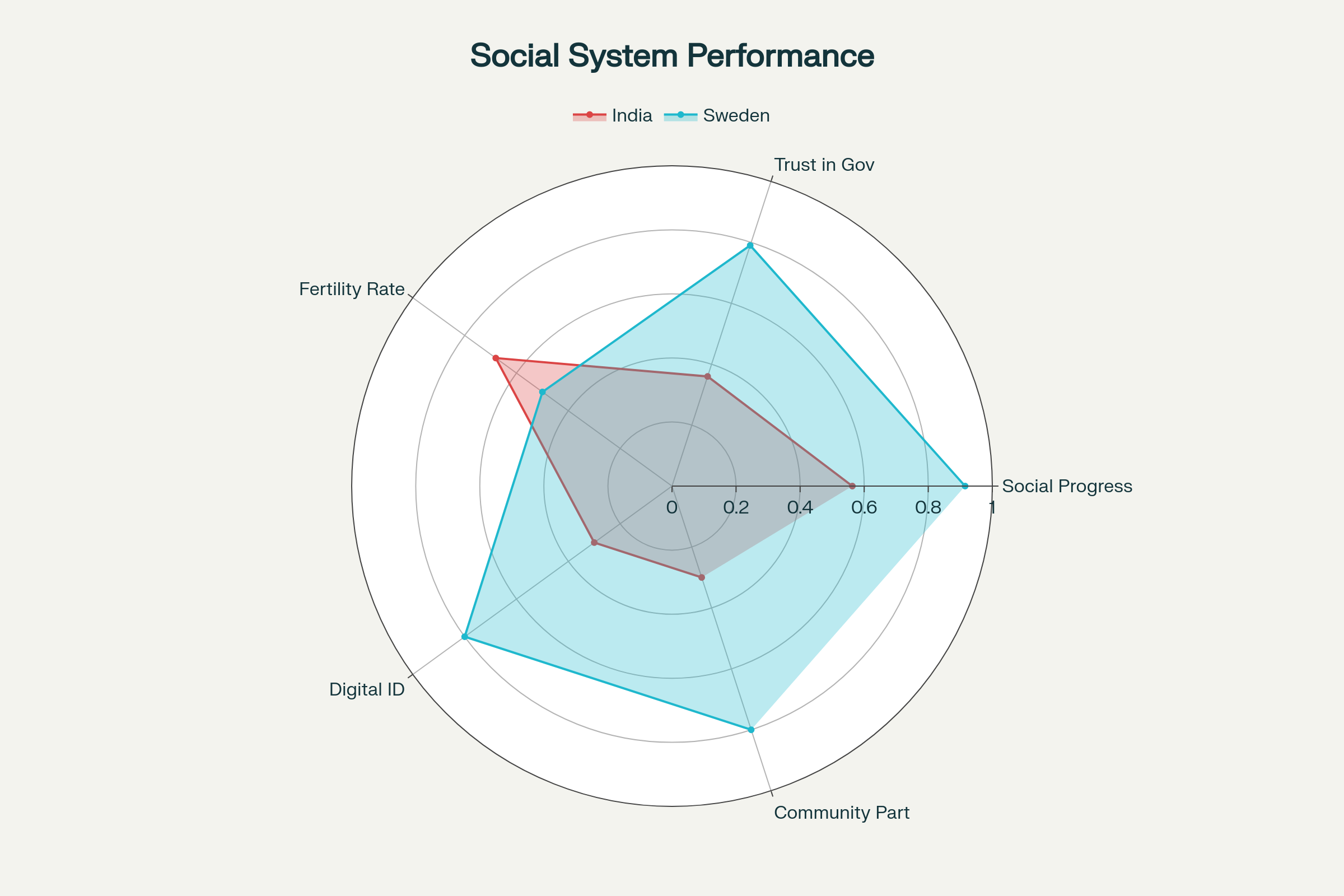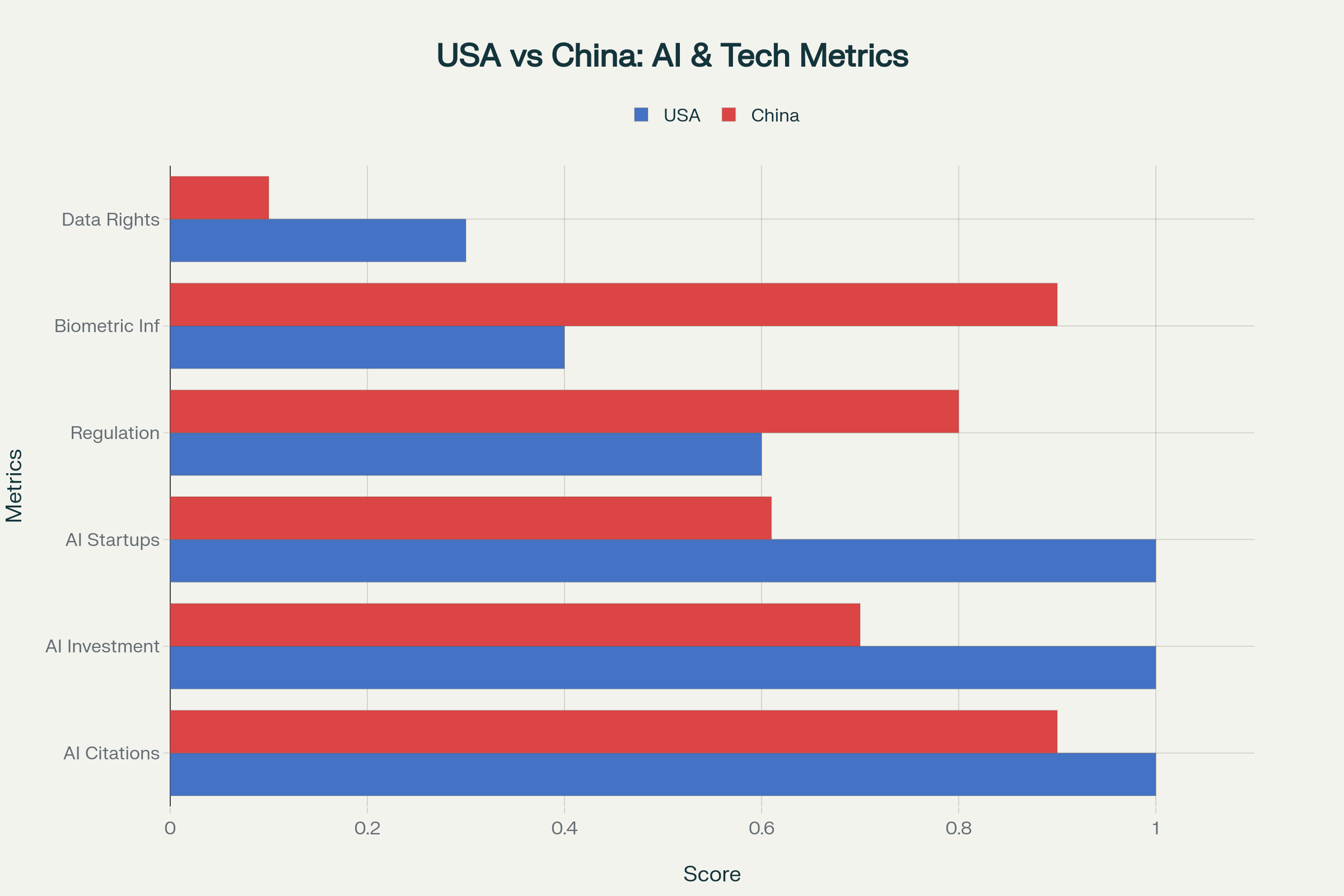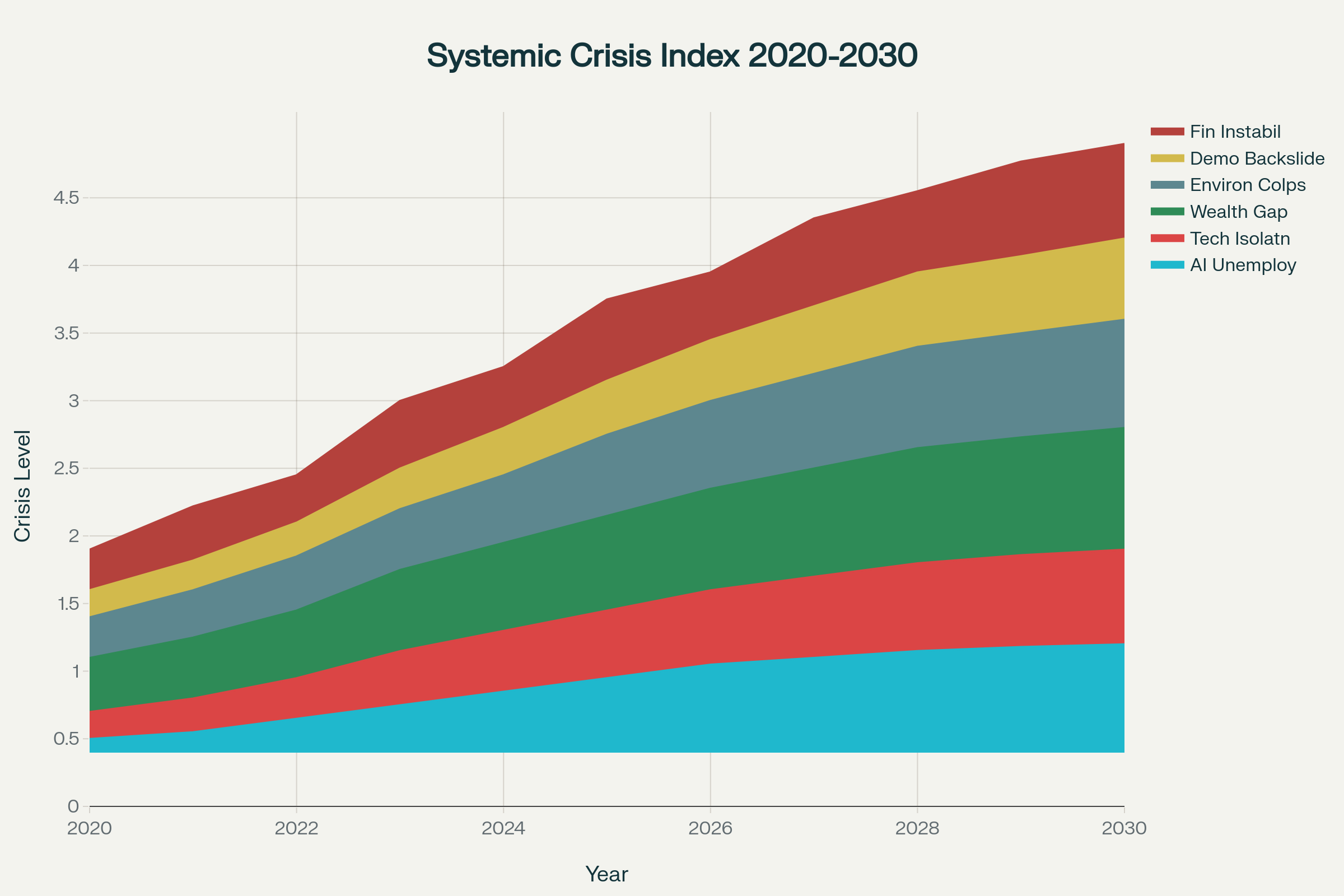The Current State of the System
Understanding the interplay of four systemic actors through multiple analytical lenses
State
Government institutions, policies, regulation, and public systems that shape societal structure and individual lives.
Market
Private sector, corporations, financial systems, and profit-driven mechanisms that drive economic activity.
Community
Social groups, cultural institutions, collective action, and shared identity that provide belonging and meaning.
Individual
Personal agency, individual choices, private life, and personal identity within systemic constraints.
Seven Analytical Lenses
Each lens reveals different aspects of how these four actors interact, compete, and shape our world. Navigate through them in any order to build a complete understanding of our current systemic reality.
Social Lens
Identity, Belonging, Compliance
From the moment you're born, the State creates a record of your existence. Birth certificate, social security number, passport—your legal identity becomes the foundation for everything else. You don't choose this identity; it's assigned, categorized, tracked.
As you grow, the Market builds its own profile of you. Your purchasing history, credit score, employment record, consumer preferences. Every transaction adds another data point to your commercial identity. Platforms track your behavior, predict your desires, and package you as a product for advertisers.
Communities offer belonging, but often with strings attached. Cultural compliance, social expectations, shared values that can both embrace and exclude. Your identity within communities is negotiated through participation, conformity, and acceptance of group norms.
Meanwhile, you as an Individual try to maintain some sense of authentic self amidst these competing claims on your identity. But increasingly, your personal identity is shaped by the systems that track, categorize, and respond to you.
System Comparison: India vs Sweden

The stark contrast reveals how different State approaches to social systems create vastly different experiences of belonging and identity.
Reflection
"You belong to what can afford to claim you."
Consider: Which of the four actors has the strongest claim on your identity? What aspects of yourself exist outside their systems of categorization?
Technology Lens
Control at Scale
Technology promised liberation but delivered new forms of control. The State now has surveillance capabilities that would make previous authoritarian regimes envious. Biometric tracking, facial recognition, digital identity systems that monitor every aspect of citizenship.
Market actors have created platform monopolies that control information, commerce, and social interaction. A handful of companies determine what you see, what you buy, and who you can reach. Their algorithms shape your reality while their platforms extract value from your participation.
Communities have been digitally mediated, often losing their physical and local character. Digital participation becomes a requirement for social belonging, but the platforms that enable this connection are owned and controlled by others.
For Individuals, privacy has eroded while algorithmic control has intensified. Your choices are predicted, your behavior is modified, and your autonomy is systematically undermined by systems designed to be addictive and manipulative.
System Comparison: USA vs China

Two different models of technological dominance: Market-driven surveillance capitalism versus State-controlled surveillance authoritarianism.
Reflection
"Tech doesn't liberate. It scales whatever system it serves."
Consider: What aspects of your life are now mediated by platforms you don't control? How has technology changed your relationship with the other three actors?
Economic Lens
Value, Work, and the Myth of Growth
The obsession with economic growth has created systems that prioritize extraction over sustainability, measurement over meaning. The State measures success through GDP, employment numbers, and productivity metrics that often ignore human welfare and environmental costs.
Market logic has penetrated every aspect of life. Platform capitalism has created new forms of digital serfdom where workers bear all the risks while platforms capture the value. Financialization has turned everything—housing, education, healthcare—into investment vehicles.
Communities struggle to maintain informal economies, care work, and local value creation that markets don't recognize or reward. Mutual aid and cooperation compete with individualistic market incentives.
Individuals face increasing economic precarity, caught between gig work that offers no security and traditional employment that may not exist. Personal financial anxiety has become a dominant life experience.
Reflection
"If you stopped working tomorrow—what part of your life would still feel valuable?"
Consider: How much of your identity and worth is tied to economic productivity? What forms of value do you create that markets don't recognize?
Political Lens
Power, Consent, and Collapse
Democratic institutions struggle to adapt to technological and economic transformation. The State faces legitimacy crises as traditional governance mechanisms prove inadequate for managing global, technological, and environmental challenges.
Market actors wield enormous influence over policy through lobbying, campaign contributions, and the threat of capital flight. Corporate interests often override democratic will, turning governance into a negotiation between political and economic elites.
Communities organize social movements and collective action, but face surveillance, suppression, and co-optation. Civic participation has been channeled into increasingly ineffective electoral processes.
Individual political agency has been reduced to voting in elections where major decisions are made by algorithms, markets, and unaccountable institutions. Your voice matters less than your data profile.
Reflection
"When policies are predicted, not debated—what are you still voting for?"
Consider: How much real influence do you have over the decisions that affect your life? Where do you see genuine democratic participation surviving?
Financial Lens
The Casino Called Value
Financial systems have become divorced from real economic value, creating a speculative economy that treats everything as a betting opportunity. The State manages monetary policy and financial regulation, but often serves the interests of financial institutions more than citizens.
Market logic has turned finance into a game of derivatives, speculation, and extraction. Wall Street profits from volatility while shifting risk to workers, taxpayers, and future generations. Corporate finance prioritizes shareholder value over all other considerations.
Communities experiment with local currencies, cooperative finance, and mutual aid networks, trying to create financial systems that serve human needs rather than capital accumulation.
Individuals face financial systems designed to extract rather than serve. Personal debt, investment risk, and financial precarity have become normal life experiences while financial literacy is treated as a personal responsibility rather than a systemic design problem.
Reflection
"We've confused price with worth, volatility with freedom."
Consider: How do financial systems shape your life choices? What would an economy look like if it optimized for stability rather than growth?
Mathematical Lens
Measurement is Power
The metrics we choose shape the reality we create. What gets measured gets managed, but what gets managed often loses its meaning. The State uses official statistics, policy metrics, and government indices to justify decisions and track progress according to limited definitions of success.
Market actors optimize for financial metrics, performance indicators, and market data that ignore externalities and long-term consequences. Algorithmic systems make decisions based on patterns in data that may not reflect human values or social needs.
Communities develop alternative measures of well-being, trust, and social health, but these often lack the institutional power of official metrics. Social indicators struggle to compete with economic ones in policy decisions.
Individuals increasingly quantify themselves through fitness trackers, productivity apps, and social media metrics. Personal measurement becomes a form of self-surveillance that shapes behavior and self-perception.
Reflection
"If your metrics became your morality—would you still be proud of what you're measuring?"
Consider: What aspects of your life do you quantify? How do measurement systems influence your behavior and values?
Global Crisis Lens
Collapse from Above, Crisis Below
Individual struggles are symptoms of systemic breakdown. The personal crises you experience—housing unaffordability, job insecurity, social isolation, environmental anxiety—are not personal failures but predictable outcomes of compound system failures.
The State responds to crises reactively, often with solutions that serve elite interests while imposing costs on citizens. Emergency powers become permanent, surveillance increases, and democratic participation decreases.
Market actors profit from crisis, turning disasters into business opportunities while externalizing costs onto society and the environment. Crisis creates new markets for privatized solutions to problems caused by privatization.
Communities bear the costs of system failures while having the least power to address root causes. Mutual aid networks form in response to abandoned public services, but they cannot scale to match systemic problems.
Individuals are told to adapt, be resilient, and take personal responsibility for systemic failures. Self-help culture becomes a way to avoid addressing structural problems.
Compounding Crisis Timeline

Multiple crises compound and reinforce each other, creating a cascade of system failures that no single actor can address independently.
Final Reflection
"The people with the most power over the system are the least incentivized to understand it."
Consider: How do your personal struggles connect to these systemic patterns? What would need to change for the system to serve human flourishing rather than extract from it?
Seraphina's Take:
"So we're all just Tinder bios for HR now."